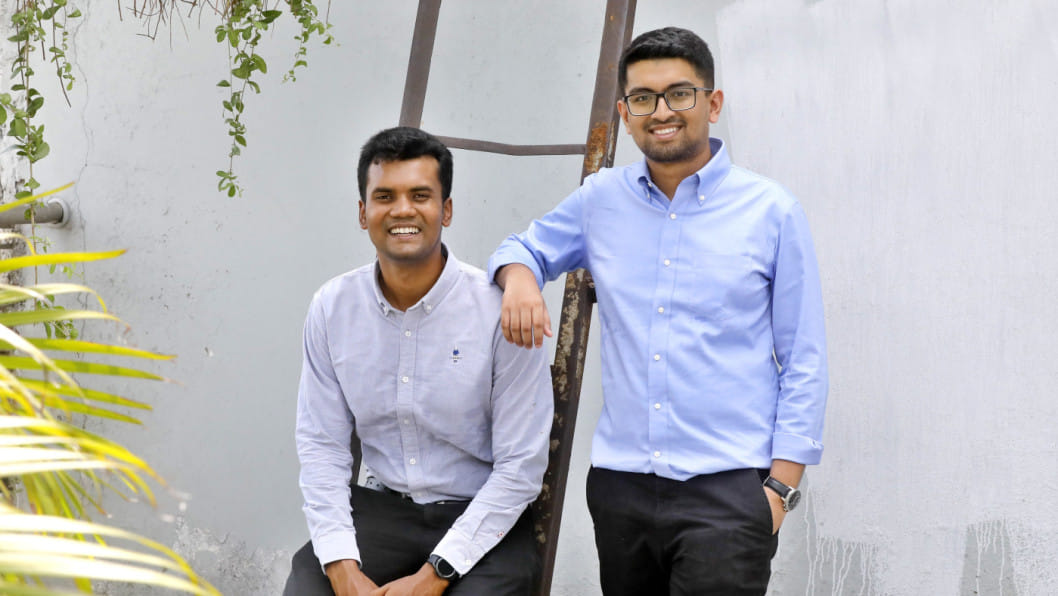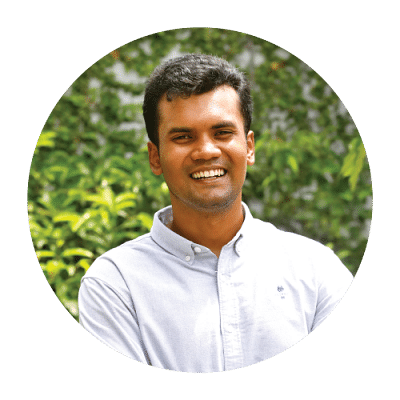Meet the world champions of debating

As we sat down with Sourodip Paul and Sajid Asbat Khandaker – team BRAC A, winners of this year's World Universities Debating Championship (WUDC 2022) – at The Daily Star, we realised the gravity of the task set ahead of us: we were about to interview the world champions of debating. As aspiring debaters, this opportunity to meet our idols felt almost unreal.
We began with the most basic question — what is WUDC? To this, Sajid explained that it is the biggest debating competition in the world, with roughly 400 international teams participating in the event. He said, "Different teams come from different universities across the world. You name a university that you think is fancy in the world, and they will send their teams to WUDC."
Most debaters don't just wake up one day and decide that they want to pursue debating, so we were curious to know what caused them to take up debating as a passion.
Sourodip's parents wanted him to pursue something which allowed him to perform on stage, so he started with poetry recitation. Soon, he found himself taking part in a small inter-school debate competition back in grade five.

Meanwhile, Sajid's interest in debating stemmed from a feeling of belonging that came attached to his school, Dhanmondi Tutorial's debating club.
"The reason why you join debating is very random, but you fall in love with the activity itself. Debating stimulates you intellectually, it requires immense strategy, knowledge and a lot of confidence in how you present yourself — all of which are enjoyable things to practise," said Sajid.
At this point the conversation got serious, as we asked them about the roadblocks that they had to face and overcome throughout their debating journey. Sajid acknowledged that they were in an advantageous position simply by the virtue of their gender and had much less societal restrictions implemented on him.
"For girls in Bangladesh, it's a lot more difficult to stay out late at tournaments, go to a male coach's house, or explain why they need to set out alone to a foreign country," stated Sajid.

According to him, the lack of institutional funding or support was one of the biggest barriers to face. "Because debating is such a niche activity, it does not have a lot of the glamour or the corporatisation which a lot of other activities do," said Sajid. This meant that for a lot of tournaments, such as the WUDC in the past, participants had to pay for their flight tickets and visas, which were often extremely expensive.
Sourodip further added how there was often a language barrier as they had to compete against teams who spoke the most refined and fluent version of the English language, "I initially struggled a lot with English, and I think a lot of people can relate to a certain extent as I was in Chittagong till seventh grade and I come from national curriculum background. So, I had to craft a simpler version of the language that I can essentially use, and still have some bit of fluency within it."
As they had taken part in multiple international tournaments over the years, we were naturally curious to know how team chemistry played a role in their success. Sourodip told us that when going to tournaments, he felt that their team chemistry was "difficult to replicate."
Sajid added that an important part of their team synergy was mutual trust in each other, saying, "We have a weird mix of calculated craziness that ends up working really well for us, because there is a huge amount of faith that we have in each other that I think ends up working really well."
When asked about the sacrifices they made to be here, both Sajid and Sourodip became reflective.
"You have to know how to balance your prep for debating with other things. So, don't let it get into some fundamentals in your life like studying or results or certain things that are unavoidable, like important dates with friends or experiences with family. For me those things are more important than debating," said Sajid.
Sajid said how he had to optimise his debate preparation into his schedule, and would often prepare when stuck in Dhaka traffic by going through articles on the internet. Sourodip also mentioned how he had to skip family dinners or miss out on hanging out with friends, despite which they have all been extremely supportive of him.
Being debaters ourselves, we had been idolising the newly-crowned champions throughout their marvellous tenure in the debate circuit. Naturally, we were curious to know, whom did our idols idolise when they had ventured into debating?
Harish Natarajan and Dan Lahav were the two names that both Sajid and Sourodip were proud to say when asked about debaters that they found to be the best of all time. In the local debating circuit, the most inspirational debater for Sajid was Saad Ashraf, while Sourodip's favourite was Wasifa Noshin, because "the style of speaking she had was just exceptional."
While discussing our debating journeys together, we also wanted to know what they would say to debaters, like ourselves, who had oftentimes been on the verge of quitting the sport because of failures.
Upon hearing this, Sajid reminded us that failing in debating is nothing new. According to him, "The people that are on the level you want to get to, have gone through the same journey, and what you need to do is learn from those failures. If it's winning you are going to be looking for, it is not going to be an easy journey. You should remember why you liked the activity and start thinking about that again."
We asked them how they'd sell the sport of debating to an average non-debater, and Sourodip's reply highlighted how debating helps us to make more intelligent conversations in our daily lives. He said, "If you want to have a philosophical conversation about superheroes, I would say that in the vast majority of cases: debaters would be able to have a better conversation about why a particular thing is good or bad."
Sajid's response focused more on the tangible benefits.
"There are some subtle skills that debate teaches you, that will help you in all major parts of your life. Skills in debating translate into very fundamental needs in the modern world," he said. He emphasised how some of the most fundamental skills taught by debating such as confidence, strategy, analysis, and team-work, also helped him to receive employment.
To wrap up the interview, we asked them a simple question. We wanted to know how they reacted when they came to know that BRAC A were the champions of this year's WUDC.
Both of them recalled how they were full of ecstasy and were hysterical for the first few minutes. Sourodip told us that he remembered pondering that they have a very good chance to win, but owing to past failures, that thought on its own wasn't strong enough. "However, it seemed like all the stars aligned this time," he remarked.
If we were feeling inspired by their achievements before, we feel even more so now due to the keen insights that we got to learn from Sajid and Sourodip, especially regarding the steps it takes for someone to achieve this level of success. It has now been done and so we know that it is possible, and maybe one day the stars will also align for another Bangladeshi team in the future.

 For all latest news, follow The Daily Star's Google News channel.
For all latest news, follow The Daily Star's Google News channel. 









Comments